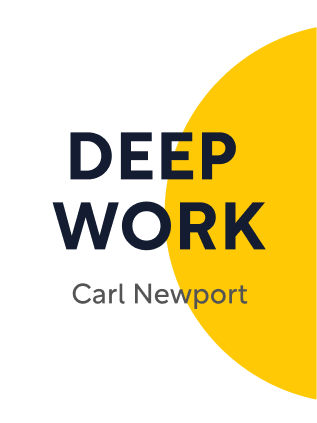

This article is an excerpt from the Shortform book guide to "Deep Work" by Cal Newport. Shortform has the world's best summaries and analyses of books you should be reading.
Like this article? Sign up for a free trial here .
What is deep work and how does it differ from shallow work? Why is deep work so rare and valuable these days? Why does deep work help with learning and productivity?
Deep work is focused and undistracted work that pushes your cognitive abilities to their limit. In contrast, shallow work describes tasks that aren’t demanding such as answering emails.
Continue on to learn more about deep work and why it’s so important.
What Is Deep Work?
“Deep work” is focused, uninterrupted, undistracted work on a task that pushes your cognitive abilities to their limit.
In contrast, “shallow work” describes tasks that aren’t cognitively demanding – like answering email, filling out paperwork, and attending unproductive meetings. These tasks don’t create much value and are easy for others to replicate.
Groundbreaking ideas and meaningful progress come from deep work, not shallow work. Shallow work is incremental. But, what is deep work? It can be transformational.
When founding Microsoft in 1974, Bill Gates was obsessive about creating the company’s first software product. He worked with incredible intensity, falling asleep on his keyboard while programming, then waking up a few hours later and resuming. Even among talented technologists, Gates was renowned for his concentration and deep work.
Why It’s So Valuable
As our economy changes, deep work becomes more valuable. Over the past decades, the economy has moved away from brute force labor to information. The old economy – working in a manufacturing plant – didn’t require deep work for most workers. But now skills that succeed in the new economy – like complex problem solving, data analysis, and computer programming – require deep work to learn and execute. Your ability to do deep work will determine how much you thrive in this economy.
Ironically, the same technologies that caused the information economy are depleting our ability to conduct deep work. Phones, emails, and addictive apps pull us away every few minutes. Thus, the time when deep work is most important is when it is most difficult.
The ability to do deep work behaves like muscle strength. If your mind is at a basal level of distraction and anxiety all day, you can lose your ability to do deep work. It becomes harder to summon the skills to focus and remain undistracted.
Building deep work takes dedicated practice and focus. That’s why some famously productive people carve out dedicated time for deep work:
- Bill Gates takes think weeks twice a year, isolating himself to read and think big thoughts.
- Woody Allen doesn’t own a computer, preferring to write on a manual typewriter instead. This avoids all the tempting distractions of the computer.
- Nobel laureate and physicist Richard Feynman wanted to escape operational and bureaucratic tasks, so he invented a myth that he was irresponsible. No one trusted him with being a department head then!
This book is divided into two parts. First we’ll cover the idea behind deep work, why it’s rare today, and why it’s so valuable. Then we’ll cover the strategies and tactics you’ll need to engage in deep work.
Deep Work is Important
In the information economy, people who have the ability to master complex machines and solve complex problems are the ones who will be more valued.
Deep work allows you to do two things critical to your performance in this economy:
1. Learn and master new skills. Today’s economy changes so quickly that a technology or best practice that was hot 5 years ago might be obsolete today. This is true of fields as wide-ranging as computer programming, marketing, academic research, and financial investments. To continue staying relevant over decades, you must continue to learn new skills. And learning challenging new skills requires focused concentration.
2. Apply the skills to increase your output. Once you’ve learned a skill, you need to do something useful to it. Consider the simple rule: High-quality work produced = Time Spent x Intensity of Focus. And once again, the application of highly technical skills requires deep focus.
If you want to have a successful career lasting decades, you need to repeat these two practices over and over again. You’ll need to change skills as new technologies and practices arise, and you’ll need to produce real results with those skills.
Furthermore, the changing economy also increases competition for your job, making it more critical to update your skills. Technology is increasingly making remote work more commonplace, putting the greatest talent around the world in reach of companies. If you’re currently employed in an office, this means one of your competitive advantages – a warm body close to headquarters – will be diminished, and you will have to increase your skill to compensate and compete with remote talent.
Why Does Deep Work Work?
Why, specifically, does deep work help you with learning and productivity? A major reason is that distractions are very costly.
- When you switch between tasks, the costs to attention are high. With every switch, you retain some mental residue from the previous task. It takes longer for you to adjust to the new task because of this residue – it might be minutes before you get into the groove of the new task. Even worse, if you’re switching between tasks every few minutes, you might have zero time in which you’re fully focused.
- Distraction might even change your brain on a molecular level. Myelination, a process of modifying your neurons to make them more effective, is critical to training neural circuits and improving your skill. And in an environment of deep focus without distractions, myelination seems to be more effective.
Overall, you likely assume that your shallow work (fast email turnaround, meetings) are critical to productivity, and dropping them will lower your standing. Just try an experiment to take a break from email for a day or cancel all your meetings. You’ll likely find that the fires took care of themselves, and the building didn’t burn down.
(Minor point from the chapter: How can Jack Dorsey be so productive while managing two large companies (Twitter and Square)? (Shortform example: Similarly, Elon Musk manages both SpaceX and Tesla). Surely their days are full of distractions, filled with endless meetings and fast decisions?
Cal Newport argues that these CEOs have specialized their roles to be “hard-to-automate decision machines.” For these companies, it’s more efficient for lieutenants to do the deep work on a hairy problem. The CEO’s role is then to review and make a judgment. Thus they incur less of a penalty for their many distractions.)

———End of Preview———
Like what you just read? Read the rest of the world's best book summary and analysis of Cal Newport's "Deep Work" at Shortform .
Here's what you'll find in our full Deep Work summary :
- How deep work is critical for performance and productivity
- Why focus is like a mental muscle
- Why willpower isn't as good as a ritual







Thanks! It is a nice and informative blog.
insider threat detection